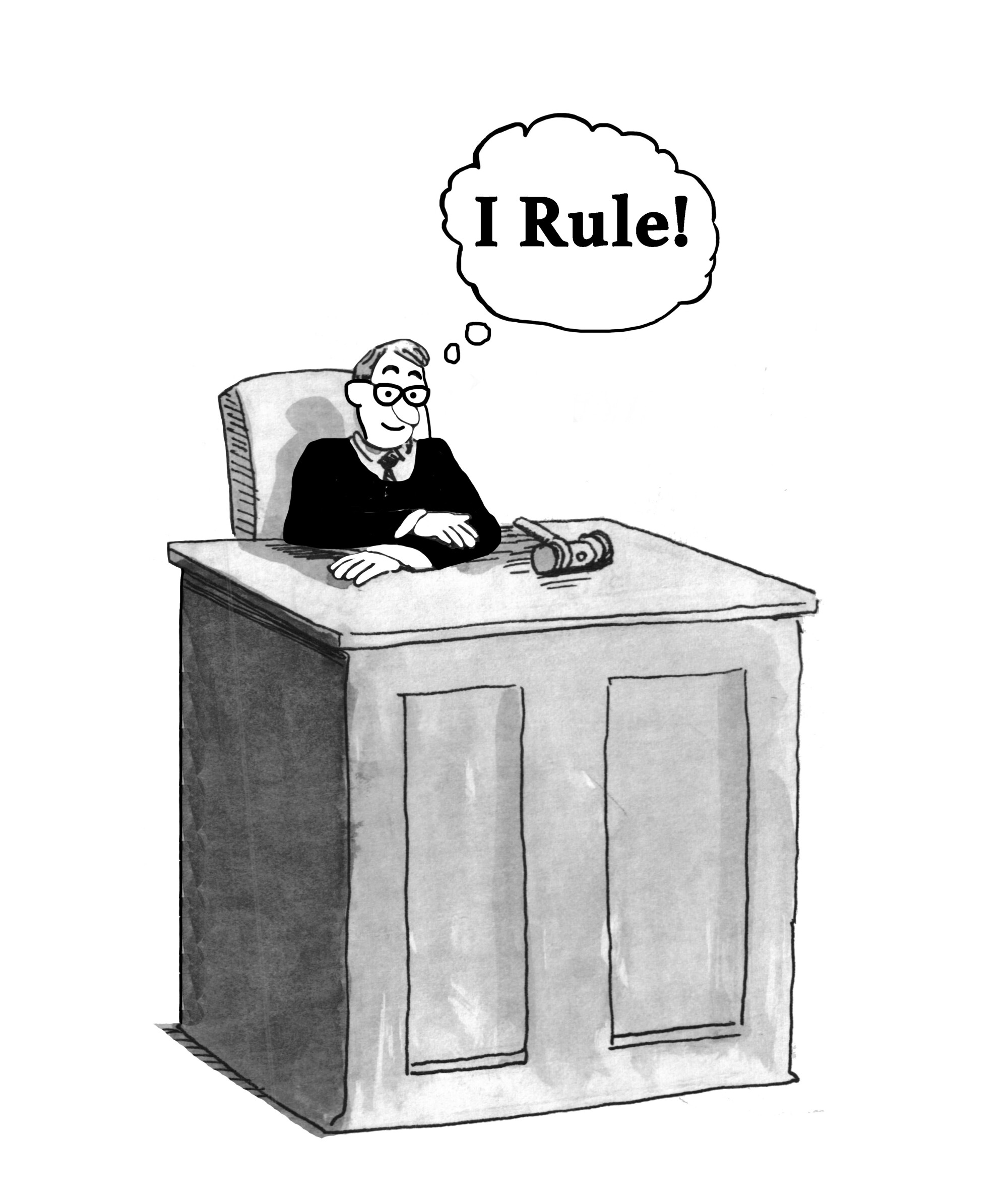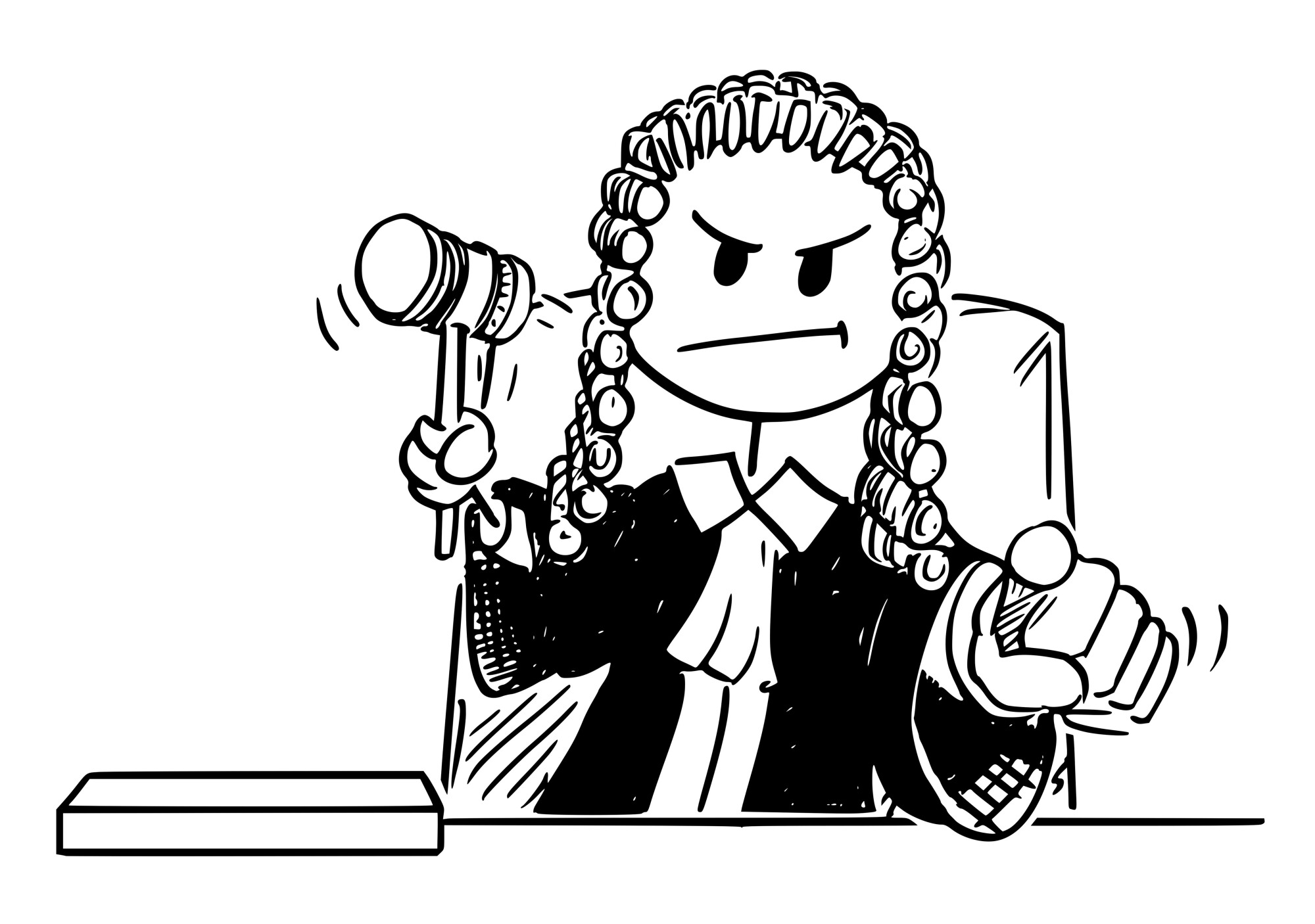Based on a real lawsuit.
Names have been changed to protect the innocent. Facts may not be 100 percent accurate.
Please provide your two cents in the comments!
PART ONE: Imagine you're the boss.
You run a fast-food franchise, Flippin' Burgers. You hire Gwendolyn to be a first-shift manager at one of your restaurants.
You have a policy that says employees, including management, will receive progressive discipline for being absent without proper notification. In non-emergency situations, they are required to call in before the start of their shifts.
Gwendolyn is out one day and fails to call in as required by the policy. Per the policy, you counsel her about the need to provide timely notice of her absences.

A little while later, she does it again. This time you amp it up to a written warning and say that failure to comply in the future could result in "disciplinary action, up to and including discharge." Per the policy.
These two failures to call in had nothing to do with any medical condition.
A little while later, Gwendolyn, who is diabetic, has a genuinely severe episode of hypoglycemia (low insulin). She is scheduled to open the restaurant that morning, but she barely knows which end is up, so she doesn't call in. But a little later, she feels well enough to drive herself to the doctor's office and while there, she calls her boyfriend and her son. She talks to her boyfriend on the phone for about 45 minutes. But she never calls you. She also never asks her boyfriend or her son to call you.
Seemingly out of the blue, you get a call from an irate customer who says the restaurant is not open. You then find out that Gwendolyn was at the doctor for this insulin episode, and so the restaurant never opened (or opened late). You call Gwendolyn, who by this time is at home but still sick, and you bawl her out for not having called you. Not for having diabetes or a medical emergency -- but for not calling to say she wouldn't be at work.
The next day, Gwendolyn is again scheduled to open the restaurant and doesn't show. Three hours after her start time, she calls in to say she'll be out.
What would you do?
A. Fire Gwendolyn for violating the notification policy for the third time. If she was able to drive herself to the doctor, spend 45 minutes talking to her boyfriend on the phone, and call her son, then she could have called to say she wouldn't be at work. Or asked her boyfriend or son to call in sick on her behalf.
B. Let it go because Gwendolyn was out due to a legitimate medical condition that is covered by the Americans with Disabilities Act. You aren't thrilled about the way she handled it, but given her medical condition there is too much legal risk in doing anything other than putting up and shutting up.
C. Consult with your employment lawyer and do what you're told.
C, of course, is always correct. Heh. But in my opinion there are decent arguments for both A and B. In other words, no wrong answers here.
PART DEUX: Now imagine you're the judge.
The boss went with Option A and fired Gwendolyn for violating the notification policy for the third time. Gwendolyn sued. You are the judge.

Gwendolyn claims violation of her rights under the Americans with Disabilities Act. She also claims interference and retaliation under the Family and Medical Leave Act. (She did ask to take FMLA leave after the boss decided to fire her but before the boss told her that she was fired.)
Flippin' Burgers asks you to dismiss her lawsuit, and offers these facts in its favor:
- The franchise had a legitimate attendance notification policy and followed it to the letter.
- The first two disciplinary actions that Gwendolyn got were unrelated to any medical condition. Gwendolyn was due for termination if there was a third occurrence.
- The third absence without notification meant that the restaurant did not open on time, which ticked off at least one customer so much that the customer called the franchise to complain.
- The third absence could have been accommodated, but the issue was with Gwendolyn's failure to provide notification of that absence.
- Since Gwendolyn managed to drive herself to the doctor's office, call her boyfriend and talk to him for 45 minutes, and call her son, she was perfectly capable of calling her boss to say she couldn't come to work.
- The supervisor was mad and yelled at Gwendolyn because she hadn't called in her absence and the store opened late and someone got chewed out by an irate customer, not because of Gwendolyn's medical condition.
- Gwendolyn was not fired for being diabetic or needing FMLA leave but for failing to provide timely notification of her absence when she appears to have been capable of doing so -- and after having received two prior warnings.
Gwendolyn shows these facts in her favor, and against dismissal of the case:
- Gwendolyn has diabetes, which is a "disability" within the meaning of the ADA.
- That third time she was out, it was due to a severe medical episode related to her diabetes, and her doctor confirmed that in writing.
- The two prior times she was out without notification were not related to a disability, so the fact that she got fired only after the third -- disability-related -- absence proves that the franchise was discriminating against her because of her disability.
- Her supervisor yelled at her over the phone after learning that she had been out due to a diabetic episode. This proves that the supervisor had disability-related animus.
- She requested FMLA paperwork twice (before she knew she'd been fired) but was never provided with it, so there's that, too.
- BUT . . . she offered no explanation for why she was able to drive herself to the doctor, call her boyfriend and talk to him for 45 minutes from the doctor's office, and call her son, but was unable to call her supervisor or to ask her boyfriend or son to call her supervisor.
Whaddaya think, your honor?
As I said at the beginning, this is based on a real case. A federal judge in Nebraska granted summary judgment to the franchise. The plaintiff appealed, and two judges on a three-judge panel on the U.S. Court of Appeals for the Eighth Circuit reversed. The issue on appeal was whether -- if the franchise was wrong and if the plaintiff really was too incapacitated to call in sick -- the franchise should still win based on its honest-but-mistaken belief that she had committed her third violation of the notice policy.
Normally, if an employer takes action against an employee because it honestly believes the employee did something wrong, then it will not be liable for discrimination. Even if it turns out that the employer was mistaken about the alleged wrongdoing. The idea is that, if the employer acted on even a mistaken belief that the employee had committed some kind of violation, then it could not have been taking action based on the employee's protected status.
(Should I have put that in a footnote? I'm thinking I should have.)
Anyway, the panel majority found that the plaintiff's ADA/medical issues were too "intertwined" with the absence and notification issues for the honest-but-mistaken-belief rule to apply. The panel majority also found that the franchise should not have been granted summary judgment on the FMLA claims.

I know you're dying for my opinion. I can't get over the fact that "Gwendolyn" was able to drive to the doctor, call her boyfriend and talk for 45 minutes, and call her son, but somehow not able to make a five-minute sick call to her boss. And, apparently, had no real explanation as to why she could do some but not the other. So I'm with the lower court and the Eighth Circuit dissenter on this one (Option A). At the same time, if a client called me for a consult before anything irreversible was done (Option C), I'd have to say that Option B might be the safer way to go.
It's not over for the real franchise. The franchise asked to have the appeal re-heard by all 11 judges on the Eighth Circuit, and the Court agreed to do that. Oral argument was held yesterday. The U.S. Equal Employment Opportunity Commission was there, on the side of Gwendolyn -- I mean, the real plaintiff. According to articles last night and this morning in Law360 and Bloomberg, the judges were divided, but both articles made it sound like the debate was mainly from two of the judges who were on the original panel. We already know what they think.
I predict a better than even chance that the full Eighth Circuit will vacate the panel decision. Once we know, I'll be back in touch.
Thanks for playing!
- Of Counsel & Chief Legal Editor
Robin also conducts internal investigations and delivers training for HR professionals, managers, and employees on topics such as harassment prevention, disability accommodation, and leave management.
Robin is editor in chief ...
This is Constangy’s flagship law blog, founded in 2010 by Robin Shea, who is chief legal editor and a regular contributor. This nationally recognized blog also features posts from other Constangy attorneys in the areas of immigration, labor relations, and sports law, keeping HR professionals and employers informed about the latest legal trends.





































